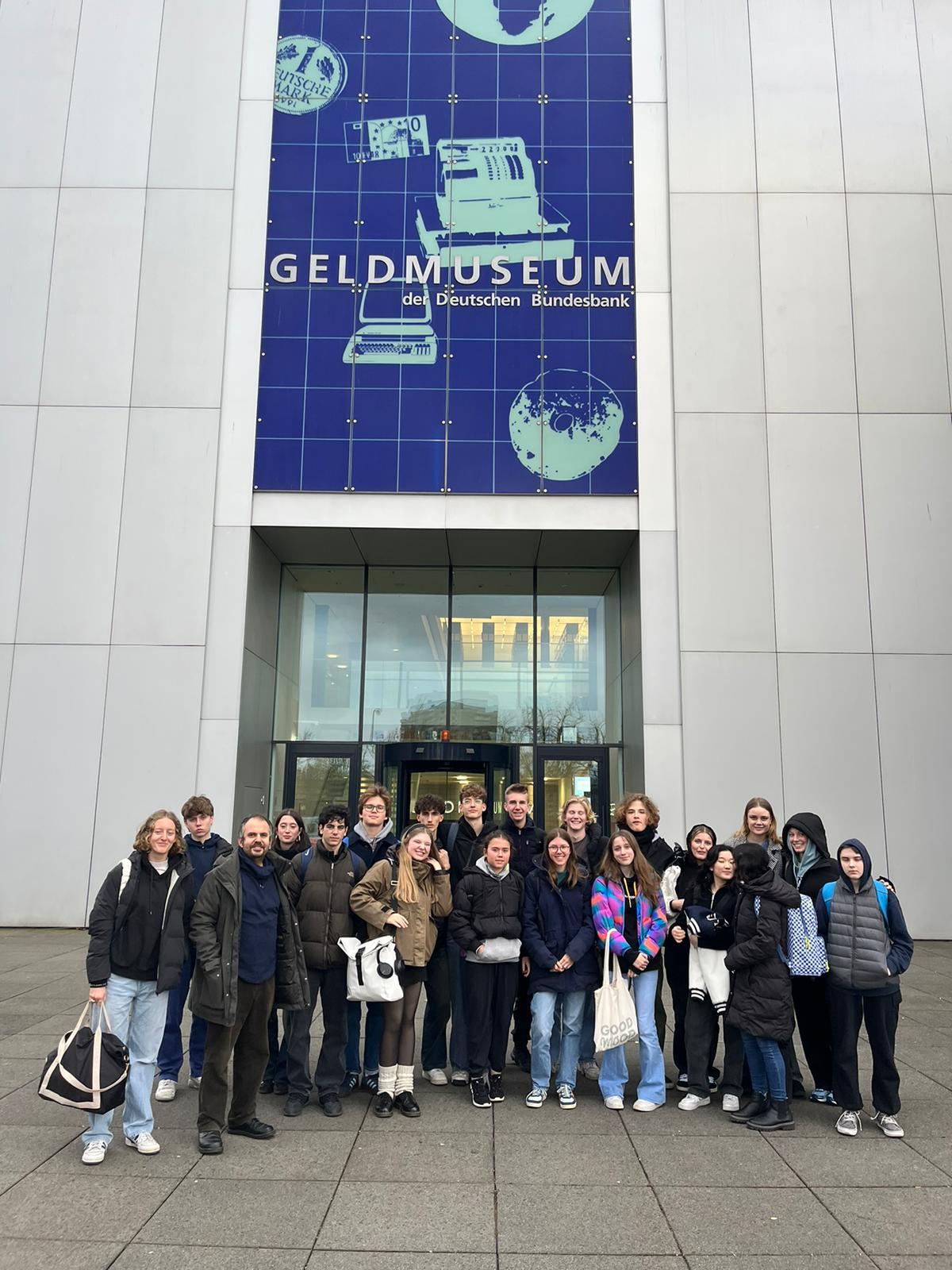Exploring Beyond the Classroom: The Significance of Field Trips for a Holistic Learning Experience
Field trips are not just an occasional break from the classroom routine; they are essential components of a holistic educational program. Recently, our Grade 11 students embarked on a two-day excursion to Frankfurt as part of their Economics curriculum, and the experience proved invaluable in enriching their understanding of real-world concepts.
The focal point of our trip was the Money Museum, where students delved into the fascinating world of currency and finance. Guided by experts in the field, they explored the history of money, gained insights into the significance of gold, and grasped the intricacies of monetary systems. Engaging with tangible exhibits and interactive displays enabled students to transcend theoretical knowledge and develop a deeper appreciation for economic principles.
A visit to the European Central Bank provided students with a firsthand glimpse into the workings of a key financial institution. Through a tailored lecture on the ECB’s current Monetary Policy, students gained insights into the mechanisms driving economic stability and growth within the Eurozone. Witnessing the practical application of monetary theory in a real-world setting fostered critical thinking and analytical skills among our students.
One of the highlights of our trip was the opportunity to engage in dialogue with the head of the Analytics Department at ING Bank. This interaction offered students invaluable perspectives on macroeconomic trends and their implications for the German economy. Hearing firsthand accounts from industry professionals not only reinforced classroom learning but also inspired students to consider the practical applications of economic theory in their future endeavors.
Beyond the acquisition of subject-specific knowledge, field trips offer numerous benefits for students’ holistic development. They promote experiential learning, encouraging students to actively engage with their surroundings and make meaningful connections between theory and practice. Additionally, field trips foster social interaction and teamwork, as students collaborate in unfamiliar environments to solve problems and achieve common goals.
Moreover, exposure to diverse perspectives and experiences broadens students’ horizons, nurturing empathy and cultural awareness. By venturing beyond the confines of the classroom, students develop a sense of curiosity and lifelong learning, laying the foundation for continuous personal and intellectual growth.
In conclusion, field trips are integral to a comprehensive educational program, providing students with opportunities for hands-on learning, real-world application, and personal enrichment. Our recent excursion to Frankfurt exemplifies the transformative power of experiential education in equipping students with the knowledge, skills, and perspectives needed to thrive in an ever-changing world.
